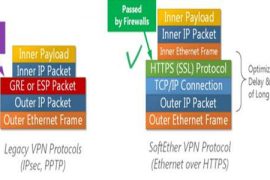Online anonymity is the main reason behind internet’s success. Anonymity and privacy are the major concerns for netizens all around the world. These are the two bedrocks that uphold the basic principle of free speech and the expression on the internet. This allows constructive discussions over various social media websites and on several discussion forums. Oscar Wilde was right in saying,
“Give a man a mask, and he will show his true face”

It is high time that people start taking matters in their own hands and adopt measures to stop the invasion of their privacy and accessing an unrestricted internet. We are born free and we are entitled to live free. So, what is the best way to avail this freedom? The answer is VPN. Now, what is a VPN is the first question that we will be answering in this article.
What is a VPN?
VPN or Virtual Private Network is a private network which connects different sites, located at different places, together. This means that a VPN allows one to create a secure connection, over the internet, to another network. The data sent over such a network is encrypted, which means, it provides total security against any intrusion to the information sent over such network.
Simply explained, when one browses the internet on a VPN connection, then the computer contacts the website over an encrypted VPN connection. The VPN acts as an intermediary for taking your requests and forwarding the responses over to your computer. Since your computer behaves like it is on that VPN network, it also allows you to access local resources, present on such networks, very easily.
What are the types of VPN?
Broadly defined, there are two different types of VPN; site-to-site and remote Access VPN.
- Site-to-site
Hugely popular in the corporate environment, it ensures safety in encryption between two LANs of the same or different companies. This enables even remotely situated offices to act as if they are on the same network. Users can share important files on such networks seamlessly.
- Remote Access VPN
This usually enables a connection between an individual computer and a private network. They can be further classified into:
- Corporate VPNs
- Personal VPNs
Corporate VPNs enable remote access to the business traveler and telecommuters to enable access to local resources on the network. Whereas, a personal VPN is similar to a corporate VPN, but local resources cannot be accessed over such VPN connection. Personal VPNs are used extensively for browsing the internet anonymously.
Modes of use
A VPN connection supports different modes of use. The modes can be broadly classified as given below:
- LAN-to-LAN internetworking
- The internet remote access client connections
- Intranet-controlled access.
All these different modes are used for different purposes under different environment. Thus, needs and demands constitute a major part in determining the mode through which VPN shall be used.
Conclusion
VPNs have a major role to play in this technologically advanced and progressive world. Through a VPN, work can be carried to anywhere in the world without worrying about the availability of your office resources. This feature of connecting through an encrypted connection to a server placed in some other location enables you to access the restricted websites.
Personal VPNs are extensively used to secure oneself against hackers and snooping. A major part of the restricted web has been made accessible through VPNs. Truly, VPNs have revolutionized the way we connect to the internet.




